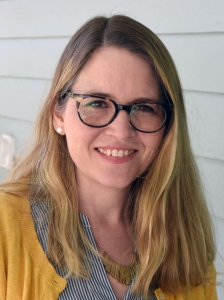Certification
JEA certification is a formal, academic certification to help scholastic media teachers and advisers demonstrate professional excellence in the field. Candidates can earn Certified Journalism Educator designation, known as CJE, to prove their status as highly qualified. Because many states have no formal journalism license or certificate, and because requirements differ widely by location, JEA certification provides a global standard for the industry with an exam created by and for scholastic journalism educators. The test is designed to measure "Do you know it?" across all essential areas of journalism, and those who pass earn professional recognition (along with a certificate and recognition at a national awards luncheon) to share with administrators, students, parents and stakeholders. The certification is valid for up to five years, as long as JEA membership is active, with the option to renew as needed.
In addition, those seeking the highest professional designation can earn Master Journalism Educator status after obtaining their CJE. The Master Journalism Educator certification, known as MJE, demonstrates the candidate's lifelong commitment to learning and places the teacher-adviser in the elite among the profession. To earn MJE status, candidates must pass an exam and complete an independent project while working under the guidance of the Certification Committee chair. The project is designed to be a meaningful experience for candidates by which they plan and execute something of interest to their professional growth; the deliverable is a product shared with the greater scholastic journalism education community as a benefit to other JEA members.
Certified Journalism Educators (CJE)
The Journalism Education Association wants its CJE to be an effective way for you to demonstrate your knowledge of the basics in journalism and media advising. We want you to be able to speak to multiple aspects of this career, including journalistic writing and editing, graphics and design, legal and ethical considerations as an educator in a school journalism setting. Your knowledge of the teaching/advising aspects of scholastic journalism is the emphasis of this designation.
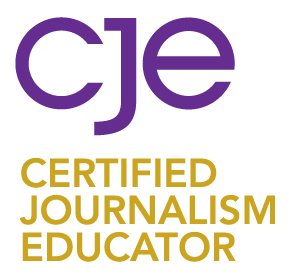
New Applicants
Cost: $60
Eligibility: Current JEA member
Application requirements: complete application questions
Test: Score a 75% or higher on the CJE exam including at least 75% on the law and ethics section within one year of application. Test scores are kept for one year.
Test retakes: If an applicant does not pass the first attempt of the test, the applicant may retake the test once for free if it is done within one year of the original application date. Applicants who score at least 75% or higher on the exam, but who do not score at least 75% on the law and ethics section, may retake that one section within one year of the original application. Any retake after one year of the original application will require the applicant to reapply and submit a $25 reapplication fee.
*Applicants who do not take the test within one year of the application will need to restart the application process.
Renewal - Every Five Years
Cost: $10 (free to retired members)
Application requirements: three professional growth activities (see list below)
*Members who let their certification lapse beyond six months will have to retake the exam.
CJE Test FAQs
Master Journalism Educator (MJE)
After reaching Certified Journalism Educator status and teaching/advising for five years, an individual may apply for Master Journalism Educator.
The purpose of the Master Journalism Educator exam is to determine if the applicant has the ability to help other journalism educators, to advise students working on a specific project, to design or adapt journalism programs to meet specific needs and to serve as a spokesperson representing journalism teachers/advisers on the local, state and national levels. The pre-approved project, paper or teaching unit is to show how this journalism expertise is demonstrated.

New Applicants
Cost: $85
Eligibility: Current CJE status and at least five years of teaching/advising experience
Application requirements: resume, letter of recommendation, three professional growth activities, proposal for MJE project and integrity statement. Applications are open from June 1-15.
Cohort: The MJE certification requires participants to engage with an online cohort. All applicants will test in the summer or fall and will complete their projects by the following June.
Project: Successful completion of approved project by June 30 of the following year. Applicants who do not complete the project within one year of application will need to reapply. The reapplication fee is $25 if the application is submitted within two years of the original application. After two years, applicants will need to restart the application process, which includes retaking the test and submitting a new project proposal.
Test: Score a 75% or higher on the MJE exam, including at least 75% on the law and ethics question, within one year of application. Applicants who do not complete the test within one year of application will need to reapply. MJE testing will take place in the summer and fall with retakes available in the spring.
Test retakes: If an applicant does not pass the first attempt of the test, the applicant may retake the test once for free if it is done within one year of the original application date. Applicants who score at least 75% or higher on the exam but do not score at least 75% on the law and ethics section may retake that one section within one year of the original application. Any retake after one year of the original application will require the applicant to reapply and submit a $25 reapplication fee.
*Applicants who do not take the test within one year of the application will need to restart the application process.
Renewal - Every Five Years
Cost: $10 (free to retired members)
Application requirements: five professional growth activities (see list below)
*Members who let their certification lapse beyond six months will have to retake the exam
*Application fees are nonrefundable. Applicants should make sure they meet requirements before submitting the application.
MJE Test FAQs
'Get Certified' Presentations
Can't attend a convention "Get Certified!" session? Want to study for certification testing in a quiet place on your own time? Here are PDF files of each session presented by members of the Certification Commission at national conventions to aid JEA members in their pursuit of highly qualified status through certification.
FAQ
Certification Committee Goals
- To promote professionalism in scholastic journalism.
- To offer national certification to scholastic journalism teachers and advisers.
- To designate as master teachers educators whose experience and expertise make them outstanding professionals.
- To recognize educators who possess the education or experience to teach scholastic journalism and advise student publications.
- To encourage those who are teaching scholastic journalism or advising student publications without an adequate background to increase their knowledge of journalism and to provide a model for their continuing education.
- To increase the availability of courses and workshops appropriate for the scholastic journalism teacher and adviser.
- To provide model certification requirements for scholastic journalism teachers in states that do not offer licensing in this field.
- To improve public and school district perceptions of certified scholastic journalism teachers as professionals.
- To increase diversity in scholastic journalism.
Certification Committee Members
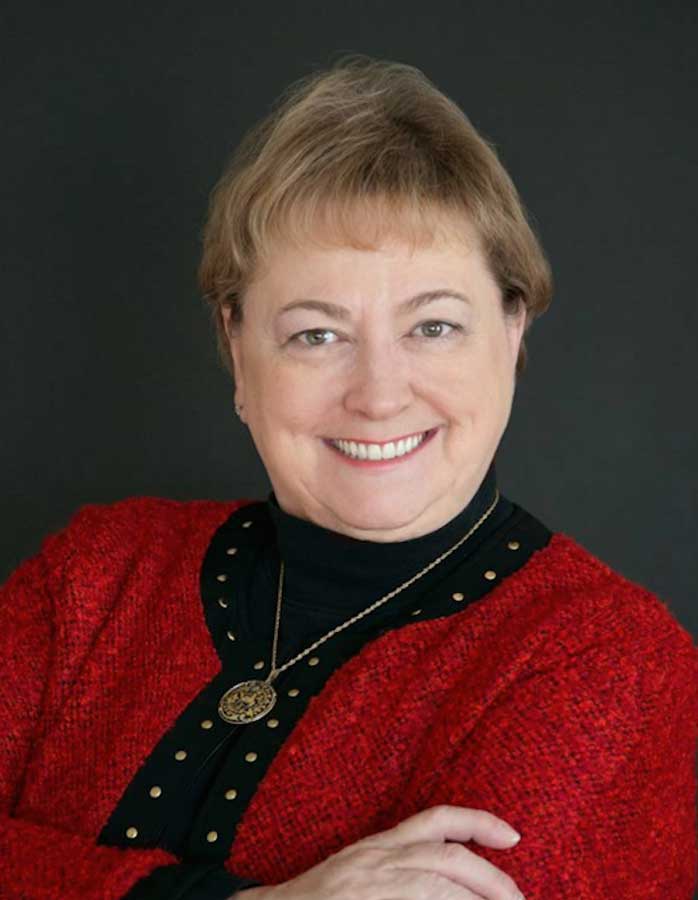
Jane Blystone, Ph.D., MJE
Pennsylvania School Press Association Vice President

Lauren Wagner, MJE
Zionsville Community High School
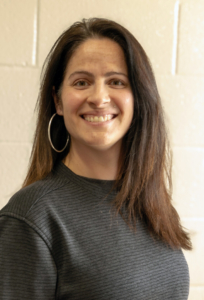
Sarah Weekley, MJE
Shawnee Heights High School

Rod Satterthwaite, MJE
Palo Alto High School

Mark Hilburn, MJE
Millard West High School
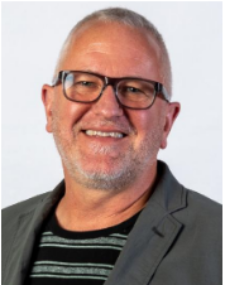
Timm Pilcher, MJE
Director at Large, 2025-2027
Drake University

Candace Perkins Bowen, MJE
Kent State University

R.J. Morgan, MJE
Mississippi Scholastic Press Association
